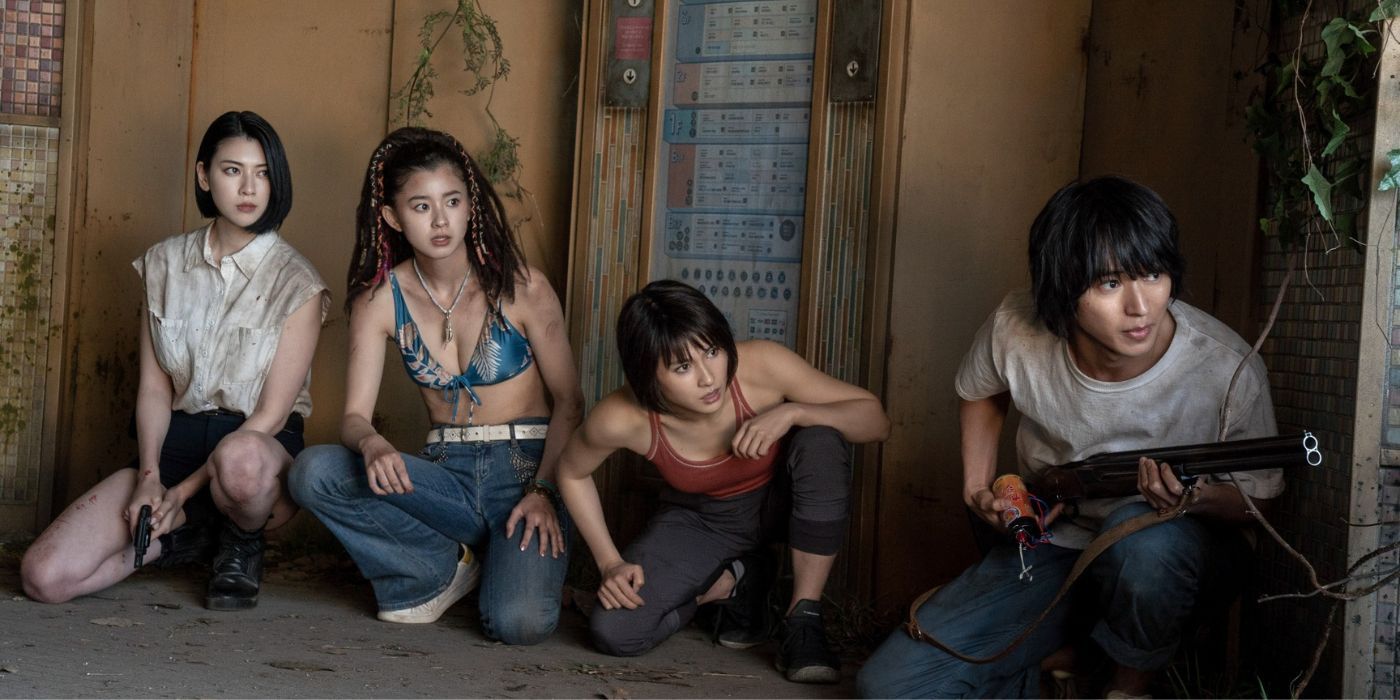The following contains spoilers for Season 2 of Alice in Borderland, now streaming on Netflix.
Netflix’s Korean survival drama Alice in Borderland successfully returned with a second season, which set a record with 61 million hours watched in a week for a non-English series. With new game arenas and opponents to battle, the stakes have never been higher. The season is also exploring new themes suggesting more than one way in which the rules of the game have changed.
In Season 1 of Alice in Borderland, the show followed a group of individuals who found themselves in an alternate version of Tokyo where they needed to play life-and-death games to survive. Arisu, a young man who wasted his days playing video games, and his friends spent the first season surviving the games and trying to find a way back home. Season 2 brought about several changes, with the players now having to play against citizens of the world representing the face cards in a deck. Apart from the obvious questions around the games themselves, this season put forward another question: Is their world worth returning to?
On Alice in Borderland, Is the World Worth Returning to?
In the first episode of Season 2, the show sets the tone through a conversation between Arisu and Usagi. She asks him, "Did you really love your life so much?" talking about how she hated their world and wouldn't want to return home. This is in direct contrast with Arisu, who is optimistic about finding a way back home and surviving the games, which provides a nice counter viewpoint. As the season progresses, Arisu continues to have moral discussions with those around him, with people asking why he keeps going in a world full of death and despair.
Arisu comes up with a simple answer, which is that he does not need a reason or a purpose for living as it is part of human nature to try to survive no matter what. It is only in the last episode that these discussions are put into context when the world's existence is explained, along with whether it is a real place. In Season 2, Episode 8, after Arisu and Usagi defeat the final boss, Mira, the Queen of Hearts, who was also the mastermind behind the games, they all wake up in a hospital in the real world. Borderland seems to have been a limbo or purgatory where people learn to value their lives again before returning. However, with the introduction of the Joker card in the finale, this may all change if there is a third season.
Alice in Wonderland Shows the Pressures of Belonging in Society
One of the central themes that pops up throughout the series is that of societal outcasts and what it means to be a part of a capitalist system. Each of the individuals who found themselves in Borderland was unhappy with their lives. Some characters, such as Chishiya and Kuzuryu, the King of Diamonds, experienced firsthand the corruption of their world. Usagi and Arisu had given into despair both due to the disappearance or death of one of their parents. After playing the games, Arisu wants to return home to try to be a better person, with Usagi also changing her mind towards the end of the season.
On the other hand, the citizens of the world also had the choice to return, but they found that Borderland gave them more freedom. Through these deadly games, they forged more meaningful connections than they would have in the real world by facing death. In doing so, they threw out conventional notions of society to make their own and live according to new rules. Season 2 focuses on elevating these topics and, through this harsh reality, puts a mirror up to human nature and society. Overall, this season of Alice in Borderland explores themes and asks questions in a manner that changes how audiences will view the series in its entirety.
Season 2 of Alice in Borderland is now available on Netflix.



